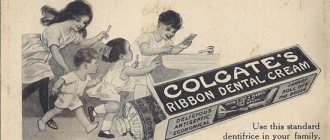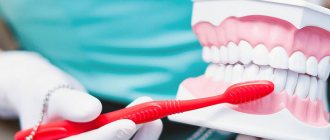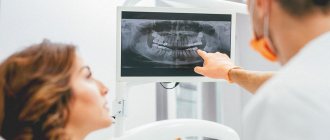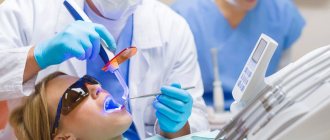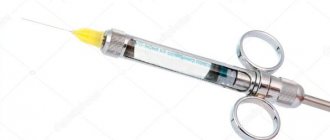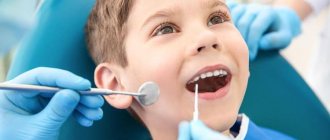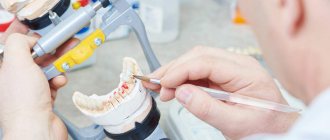Story
It is generally accepted that the profession of a hygienist appeared in Russia quite recently - in the early 2000s. In America, where much attention is paid to disease prevention (after all, it is this approach that ultimately turns out to be economically beneficial for clients), the work of a dental hygienist began to become a separate profession already in the middle of the 19th century. It was then that doctors began to entrust their assistants with the care of keeping patients’ teeth clean and protecting them from caries. This made it possible to reduce the number of infectious diseases of the oral cavity by 60–65%.
Advantages and disadvantages
Hygienic dentistry is a modern direction that deals with the prevention of diseases of the oral cavity through proper care. This profession has its advantages and disadvantages, which affect its popularity among applicants entering medical schools.
Main advantages:
- demand for the profession;
- ease of employment;
- high profit payment;
- relative ease of operation;
- comfortable working conditions;
- absence of stressful situations;
- opportunity for career growth.
There are not too many disadvantages to the specialty, but they should not be ignored. The information received will provide an opportunity to learn in advance about all the negative aspects of the profession.
Main disadvantages:
- difficulties with entering universities;
- a lot of effort (the hygienist spends a lot of time on his feet);
- high risk of contracting any infection.
Description and characteristics of the profession
A dental hygienist is a medical specialist who can work both independently and assist dentists (orthodontists, periodontists, surgeons, etc.). The main goal of his work is the prevention of diseases of the oral cavity and teeth.
The dental hygienist must:
- have a good understanding of the anatomy and physiological processes of the body as a whole;
- carry out preventive measures aimed at maintaining oral health;
- instruct patients on hygiene procedures;
- perform diagnostic and treatment procedures provided for by the specialty;
- master first aid techniques in case of critical situations (an allergic reaction in a patient, a sharp drop in blood pressure, etc.);
- know the causes and symptoms of dental pathologies;
- work with the latest technical equipment and instruments;
- understand the mechanism of action and effect of prescribed drugs.
Hello! “What are the opportunities for working as a hygienist for a citizen of the Russian Federation with a foreign diploma as a hygienist and a Russian diploma as a nurse?
(30.09.2019 )
- I have a diploma from the St. Petersburg Medical School from 1993 as a nurse, I have a diploma of advanced training in nursing in 2019, a certificate of nursing, a certificate of advanced training in nursing in dentistry 144 hours, a certificate of dental care for the population 144 hours.
- Diploma from a dental college in Israel in 2005, hygienist.
Answer:
- At the moment, you have provided diplomas and certificates of the Russian Federation for the qualification “nurse”, so now you can officially apply for the position of a dental nurse when employed in Russia.
- General information on diploma recognition issues for foreign citizens can be found here; at the bottom of the link there are phone numbers. https://obrnadzor.gov.ru/ru/activity/public_services/recognition_of_documents
- You can also apply for a second secondary education in the specialty “Preventive Dentistry” under the 10-month program for specialists with secondary medical education. Details www.dentalcollege.ru
The answer was prepared by the Honorary President of POGS Shevchenko S.S.
Hello.
Please tell me whether a medical worker has the right to work as a hygienist if he has a first degree in nursing, has more than 5 years of experience and has undergone retraining for a period of 10 months, for which he has received a retraining diploma. Now he is getting a job in the government. a clinic that does not accept a diploma, because It says there that the diploma is about retraining. (dental hygienist from St. Petersburg).
(04.2019)
Answer:
The qualification requirements for “dental hygienist”, approved by Order of the Ministry of Health and Social Development of the Russian Federation dated July 23, 2010 No. 541n “On approval of the Unified Qualification Directory of Positions of Managers, Specialists and Employees”, section “Qualification Characteristics of Worker Positions in the Healthcare Sector” also establishes the presence secondary vocational education in the specialty “Preventive Dentistry” and a specialist certificate in the specialty “Preventive Dentistry” without presenting requirements for work experience.
Thus, to carry out the activities of a hygienist, it is necessary to have a secondary vocational education in the specialty “Preventive Dentistry” and a specialist certificate in the specialty “Preventive Dentistry” without experience requirements.
It is important to be guided by the Order of the Ministry of Health of Russia dated February 10, 2016 N 83n, and the data according to the order dated August 3, 2012 N 66n (which gives permission for any types of retraining for persons with secondary specialized education) should be considered corrected in 2016.
Order of the Ministry of Health of Russia dated February 10, 2016 N 83n approved the qualification requirements for medical and pharmaceutical workers with secondary medical and pharmaceutical education. In Letter dated March 29, 2016 N 16-5/10/2-1907, the Russian Ministry of Health explained that this document defines the qualification requirements for the level of education and the type of additional professional education (professional retraining and (or) advanced training) for medical and pharmaceutical workers with secondary medical and pharmaceutical education.
The said order established that “Preventive Dentistry” is a separate specialty. To occupy the position of Dental Hygienist, secondary vocational education in the specialty “Preventive Dentistry” and advanced training are required at least once every 5 years throughout the entire career. This order also contains an exhaustive list of specialties for which an applicant, if he has a diploma in the specialty “Nursing,” has the right to undergo retraining, BUT THERE IS NO RIGHT TO RETRAINING in the specialty “preventive dentistry.”
Thus, in our opinion, occupying the position of dental hygienist in accordance with the requirements approved by the Order of the Ministry of Health and Social Development of the Russian Federation dated July 23, 2010 No. 541n in the context of the question posed is possible only with secondary vocational education in the specialty “Preventive Dentistry” and corresponding specialist certificate.
The answer was prepared by the Honorary President of POGS Shevchenko S.S. together with a lawyer. Read full answer
Hello!
Help with licensing! The following situation has arisen. I got a job at the Municipal Budgetary Institution “Policlinics No. 38” Health Center as a dental hygienist. She was preparing for licensing of the office. Licensing was successful, and the clinic received licensing in General Dentistry. But as a hygienist, I didn’t pass the licensing test, because... no certificate. I have the following documents on hand:
1. Diploma from Ufa Medical College (dentist - graduated in 2008);
2. dental certificate;
3. permission to work as a dental hygienist (rector of BSMU);
by Order of the Ministry of Health and Social Development of the Russian Federation (Ministry of Health and Social Development of Russia) dated March 19, 2012 N 239n Moscow “On approval of the Regulations on the procedure for admission of persons who have not completed the development of basic educational programs of higher medical or higher pharmaceutical education, as well as persons with higher medical or higher pharmaceutical education to carry out medical activities or pharmaceutical activities in positions of nursing or nursing staff" Registered with the Ministry of Justice of the Russian Federation on June 13, 2012, Registration No. 24563
Persons who have completed the basic educational program of higher medical education in the specialty “Dentistry” in the amount of 4 courses or more or who have a diploma of higher professional education in the specialty “Dentistry” may be allowed to carry out medical activities in the position of paramedical personnel - dental hygienist.
4. Academic certificate with grades indicating that you have completed 5 courses at the Faculty of Dentistry of the Belarusian State Medical University.
In the Republic of Bashkortostan they do not train dental hygienists, so I cannot obtain a dental hygienist certificate. And I have the right to work according to orders. Please tell me what to do in this situation.
Sincerely, dental hygienist, Municipal Budgetary Healthcare Institution “Polyclinic No. 38”
Gimaltdinova R.R.
Answer:
In the Order No. 239n dated March 19, 2012, which you indicated, “On approval of the Regulations on the procedure for admitting persons who have not completed the basic educational programs of higher medical or higher pharmaceutical education, as well as persons with higher medical or higher pharmaceutical education to carry out medical activities or pharmaceutical in positions of paramedical or paramedical personnel" it is established that persons who have mastered the basic educational program of higher medical education in the specialty "Dentistry" in the amount of 4 courses or more or who have a diploma of higher professional education in the specialty "Dentistry" may be allowed to carry out medical activities in the position of paramedical personnel - dental hygienist.
However, paragraph 4 of the Regulations on licensing of medical activities (with the exception of the specified activities carried out by medical organizations that are part of the private healthcare system in the territory of the innovative one), approved by Decree of the Government of the Russian Federation No. 291 of April 16, 2012 “On licensing of medical activities (with the exception of of the specified activities carried out by medical organizations that are part of the private healthcare system on the territory of the innovative )", which determines the procedure for licensing medical activities carried out on the territory of the Russian Federation, has established:
The licensing requirements for an applicant for a license to carry out medical activities are:
the presence of employees who have concluded employment contracts with the license applicant and have secondary, higher, postgraduate and (or) additional medical or other professional education necessary to perform the declared work (services) and a specialist certificate (for specialists with a medical education).
Thus, to obtain a license to work (service) in preventive dentistry, you must have a specialist certificate.
The Professional Society of Dental Hygienists provides assistance in certification in the specialty “Preventive Dentistry”. Become a member of the POGS and send us an application.
Sincerely, Svetlana Olegovna Khaustova, POGS Lawyer.
Hello, Svetlana Olegovna!
Please tell me whether a dentist (with a certificate of “general dentistry”) has the right to work as a hygienist in the Health Center? If yes, then what law provides for it? If not, then what is needed? Thank you, with respect Lyudmila Mikhailovna. Answer:
Dear Lyudmila Mikhailovna!
In accordance with the requirements for the qualifications of a dental hygienist, approved by Order of the Ministry of Health and Social Development of the Russian Federation dated July 23, 2010 No. 541n “On approval of the Unified Qualification Directory of Positions of Managers, Specialists and Employees, section “Qualification Characteristics of Positions of Workers in the Healthcare Sector”, A dental hygienist must have a secondary vocational education in the specialty “Preventive Dentistry” and a specialist certificate in the specialty “Preventive Dentistry” without presenting any work experience requirements. Sincerely, Svetlana Olegovna Khaustova, POGS Lawyer. Good afternoon Please tell me if I can work as a hygienist in a clinic if the license does not include preventive dentistry, but there is dentistry and therapeutic dentistry. I don’t have a certificate, this summer I will receive a diploma as a dentist, and now I have permission to practice medicine. activity as a hygienist for a period of 5 years (certificate). Thank you in advance for your response. Sincerely, Yulia Answer:
Dear Yulia, Resolution of the Government of the Russian Federation No. 291 of April 16, 2012 “On licensing of medical activities (with the exception of the specified activities, with the exception of the specified activities carried out by medical organizations and other organizations included in the private healthcare system, on territory of the innovative one) the Regulations on licensing of medical activities were approved (with the exception of the specified activities carried out by medical organizations and other organizations included in the private healthcare system in the territory of the innovative one) (hereinafter referred to as the Regulation).
The list, enshrined in the Appendix to the above Regulations, contains works (services) that constitute medical activities performed in the provision of primary health care, including preventive dentistry. Accordingly, this type of medical activity is subject to licensing. Subclause “d” of clause 4 of the Regulations establishes the licensing requirement for a license applicant to carry out the relevant medical activities - the presence of employees who have concluded employment contracts with the license applicant and have secondary, higher, postgraduate and (or) additional medical or other necessary to perform the declared work (services) professional education and specialist certificate (for specialists with medical education). The qualification requirements for “dental hygienist”, approved by Order of the Ministry of Health and Social Development of the Russian Federation dated July 23, 2010 No. 541n “On approval of the Unified Qualification Directory of Positions of Managers, Specialists and Employees”, section “Qualification Characteristics of Worker Positions in the Healthcare Sector” also establishes the presence secondary vocational education in the specialty “Preventive Dentistry” and a specialist certificate in the specialty “Preventive Dentistry” without presenting requirements for work experience. Thus, to carry out the activities of a dental hygienist, a clinic must have a license to carry out medical activities in the field of preventive dentistry. An employee holding the position of a dental hygienist needs a specialist certificate in the specialty “Preventive Dentistry”. At the same time, Order of the Ministry of Health and Social Development of the Russian Federation No. 239n dated March 19, 2012 “On approval of the Regulations on the procedure for admitting persons who have not completed the basic educational programs of higher medical or higher pharmaceutical education, as well as persons with higher medical or higher pharmaceutical education to carry out medical activities or pharmaceutical activities in the positions of paramedical or paramedical personnel" allows persons who have mastered the basic educational program of higher medical education in the specialty "Dentistry" in the amount of 4 courses or more or who have a diploma of higher professional education in the specialty "Dentistry" to carry out medical activities in the position of nursing staff - dental hygienist. April 2014 Sincerely, lawyer NP POGS. Hello. Please tell me whether a dentist or therapist has the right to work as a hygienist without obtaining a hygienist certificate? ANSWER: Decree of the Government of the Russian Federation No. 291 of April 16, 2012 “On licensing of medical activities (with the exception of the specified activities, with the exception of the specified activities carried out by medical organizations and other organizations included in the private health care system, on the territory of the innovative one) approved the Regulations on the licensing of medical activities (with the exception of the specified activities carried out by medical organizations and other organizations included in the private healthcare system on the territory of the innovative one) (hereinafter referred to as the Regulations). The list, enshrined in the Appendix to the above Regulations, contains works (services) that constitute medical activities performed in the provision of primary health care, including preventive dentistry. Accordingly, this type of medical activity is subject to licensing. Subclause “d” of clause 4 of the Regulations establishes the licensing requirement for a license applicant to carry out the relevant medical activities - the presence of employees who have concluded employment contracts with the license applicant and have secondary, higher, postgraduate and (or) additional medical or other necessary to perform the declared work (services) professional education and specialist certificate (for specialists with medical education). The qualification requirements for “dental hygienist”, approved by Order of the Ministry of Health and Social Development of the Russian Federation dated July 23, 2010 No. 541n “On approval of the Unified Qualification Directory of Positions of Managers, Specialists and Employees”, section “Qualification Characteristics of Worker Positions in the Healthcare Sector” also establishes the presence secondary vocational education in the specialty “Preventive Dentistry” and a specialist certificate in the specialty “Preventive Dentistry” without presenting requirements for work experience. Thus, to carry out the activities of a hygienist, it is necessary to have a secondary vocational education in the specialty “Preventive Dentistry” and a specialist certificate in the specialty “Preventive Dentistry” without experience requirements. At the same time, Order of the Ministry of Health and Social Development of the Russian Federation No. 239n dated March 19, 2012 “On approval of the Regulations on the procedure for admitting persons who have not completed the basic educational programs of higher medical or higher pharmaceutical education, as well as persons with higher medical or higher pharmaceutical education to carry out medical activities or pharmaceutical activities in positions of paramedical or paramedical personnel" allows persons who have mastered the basic educational program of higher medical education in the specialty "Dentistry" in the amount of 4 courses or more or who have a diploma of higher professional education in the specialty "Dentistry" to carry out medical activities in the position of nursing staff - dental hygienist. At the same time, the Ministry of Education and Science of Russia in Letter dated July 27, 2012 N 05-10 explained that according to the approved procedure, persons who have not completed the basic educational programs of higher medical or higher pharmaceutical education, as well as persons with higher medical or higher pharmaceutical education, may be admitted to carrying out medical activities or pharmaceutical activities in positions of nursing or nursing staff upon presentation of an academic certificate (diploma of incomplete higher professional education), a diploma of higher medical or higher pharmaceutical education, as well as a positive result of passing the exam for admission to medical or pharmaceutical activities activities in positions of paramedical or paramedical personnel (hereinafter referred to as the examination), confirmed by an extract from the examination protocol. In order to conduct this exam, educational organizations implementing educational programs of higher medical or higher pharmaceutical education that have state accreditation, create appropriate commissions including employees of the educational organization, educational organizations of secondary medical and secondary pharmaceutical education, the executive body of the constituent entity of the Russian Federation in the field of health protection, representatives of territorial bodies of the federal executive body exercising control and supervision functions in the field of healthcare (Roszdravnadzor). Attention is also drawn to the fact that the indicated order of the Ministry of Health and Social Development of Russia does not provide for charging applicants for passing the exam and for issuing the relevant documents. Honorary President of NP POGS Ph.D. Shevchenko S.S. (response prepared jointly with POGS lawyer)
Specialties, universities and Unified State Exam subjects
Medical colleges and universities prepare dental hygienists:
- colleges - specialty 02/31/06 “Preventive Dentistry”;
- universities - specialty 05/31/03 “Dentistry”.
Education at the college is conducted only on the basis of 11 classes. Preparation period – 1 year 10 months. Admission is based on a certificate competition.
To become a university student, you will need Unified State Examination results in the Russian language, mathematics, biology and chemistry or physics. Studying at the university will take 5 years, another two years will be spent on residency.
You can only get an education in colleges and universities on a full-time basis.
There are faculties of dentistry in all multidisciplinary medical universities and in specialized Russian universities that train medical workers. For example, in Moscow it is:
- Moscow State Medical and Dental University named after. A.I. Evdokimov.
- First Moscow State Medical University named after. THEM. Sechenov.
- Peoples' Friendship University of Russia.
- Russian National Research Medical University named after N.I. Pirogov and many others.
When deciding where it is better to get an education as a dental hygienist, you should take into account the indisputable fact: graduates of higher educational institutions are more willingly hired for well-paid vacancies in private medical centers and clinics.
Personal qualities
Before enrolling as a full-time or part-time student at a university, you need to find out where to study and what personal qualities will be needed in your future profession. Their presence or absence will help determine the appropriateness of choosing an applicant.
Required qualities:
- accuracy;
- pedantry;
- politeness;
- responsibility;
- determination;
- communication skills;
- persistence;
- altruism.
Responsibilities
To understand what a dental hygienist does, it is not necessary to have specialized knowledge in medicine or understand specific terminology. His responsibilities include:
- drawing up an individual comprehensive oral care program;
- explanation of teeth brushing techniques;
- grinding of irregularities and defects of fillings;
- remineralization (enrichment with calcium) of enamel and its strengthening with fluoride-containing preparations;
- “sealing” small cracks in the enamel, which lead to increased tooth sensitivity;
- removal of dental plaque (tartar);
- treatment of periodontal disease.
During your appointment, your dental hygienist will adjust your nutritional program and select methods that will help you take full care of maintaining your oral health. If diseases and pathologies are detected, the treatment of which is not within his competence, the hygienist will recommend a visit to a therapist, orthodontist or surgeon.
The College of Dentistry in Moscow implements the specialty 02/31/06 “Preventive Dentistry”
Dentistry is one of the most ancient specialties, but despite this it is still in demand and relevant even today.
Science is developing, new technologies are emerging, and more and more people are paying attention to taking care of their health and the condition of their teeth and oral cavity. A professional dentist enjoys great respect and trust; each of us has to turn to him as a specialist at least once in our lives. That is why the specialty of dentist is honorable and always relevant. And the demand for professional workers in the field of dentistry is very high. Individual education program
Experienced and practicing teachers
Wide range of job opportunities after college
Training under an abbreviated program at universities
Apply for admission
Who is the profession suitable for?
Like any medical specialty, the profession of a dental hygienist requires a special character. This is working with people who, due to illness, often become irritable and moody. To avoid conflicts, you must have an understanding of the basics of psychology and be able to establish contact with patients.
So, those who plan to devote themselves to preventive, that is, prophylactic dentistry, need to:
- be able to find a common language with patients;
- do not suffer from excessive disgust;
- be inquisitive and have a desire to continuously learn;
- have stress resistance;
- do not get lost in case of emergency situations.
Requirements
A dental hygienist does not treat oral diseases, but only prevents them. Despite this, it is subject to rather strict requirements that must be met.
List of requirements:
- Education. To become a dental hygienist, you need to graduate from a medical college or any specialized university, either full-time or part-time.
- Knowledge. Those wishing to become a hygienist must have knowledge in the field of anatomy, physiology, and pharmacology. In addition, they must thoroughly know the Latin language and the rules of oral hygiene.
- Skills. The specialist will need skills in working with modern medical equipment and communicating with patients of different psychological types.
- Observe precautions. People with various serious diseases can see a hygienologist. Therefore, in order not to contract any infection, he needs to follow all personal safety rules.
Prospects for the profession
After graduating from a technical school or college, you can practice independently in budgetary organizations or together with a dental therapist in private clinics.
After graduating from a higher educational institution, you can work as a general dentist (therapist or hygienist) or obtain a narrower specialization as an orthodontist, prosthetist, surgeon, etc. You can work in public and private clinics. At the same time, no one forbids opening your own office. A good young doctor with a clear head and golden hands will quickly “grow” with a regular clientele. The only, but very significant, obstacle on this path is the material side of the issue. Opening even a small dental office requires a significant initial investment.
If you still have even the slightest doubt that the profession of a dental hygienist is right for you, then we strongly recommend taking a career guidance test from Profgid . It costs mere pennies, and at the same time allows you to avoid mistakes that can go in the wrong direction and cripple your entire life. Find out more >>
Work, salary and career
A dental hygienist refers to personnel who may work in a variety of healthcare settings (pediatric and adult). In addition, a specialist can conduct private activities by opening his own dental office.
Possible places of work:
- Research Institute;
- college or university;
- public clinic;
- medical Center;
- dental office;
- aesthetic dentistry clinic.
Salaries for a hygienist can vary widely. Its size depends on the place of work, qualifications and experience.
The career of most young specialists begins in public medical institutions. Having accumulated sufficient experience, the dentist can move to a private clinic or medical center. The top of the career ladder will be the position of head of one of the dental institutions.
